Now that Liddell’s been closed, there are 44 coal unit remaining in the NEM.
These still supply a large share of the energy consumed from the NEM, and are a focal point for increased attention as stakeholders in the NEM grapple with how to replace them as the progressively close (not just in terms of the energy supplied by the plant, but also in terms of the dispatchable capacity they represent – remembering that we’re not building enough replacement dispatchable capacity).
(A) Longer term trends
In the GenInsights Quarterly Update series, we continue to track various performance metrics for coal units specifically in Appendix 5.
On 6th March 2023 we shared how ‘Unavailability of coal units hits 24% across calendar 2022 (but they are *not* collectively tripping more often)’, following the delivery of the 198-page GenInsights Quarterly Update for Q4 2022 to our clients.
(B) In the past 24 hours
Using the ‘Notifications’ widget inside of our installed ez2view software, I’ve configured for myself an alert that emails me whenever any of these coal units switches off. These units do this, from time to time … but (as noted in the title of this article) the rate of coal units tripping has not increased over time,
That’s why it was a bit of a surprise to see 4 separate alerts (relating to 4 different units) triggered within the past 24 hours. Here are three of the alerts (I’d deleted the other one):
First port of call for me in understanding more about this was to open up the ‘Generator Outages’ widget within ez2view as follows:
The 4 units that switched off within the past 24 hours (Kogan Creek, Loy Yang A2, and Yallourn units 3 and 4) are highlighted above. Remember with this widget that:
1) Columns to the left of ‘today’ are the maximum availability of that unit on each particular day; and
2) Columns to the right of the ‘today’ unit are the MT PASA DUID Availability expectations (with the faded columns showing slightly ‘stale’ data because of the AEMO data updating approach that runs from the following Sunday).
3) The three columns for ‘today’ provide a richer view for today (from SCADA data and also MT PASA DUID).
Using the ‘Forecast Convergence’ widget that was upgraded in ez2view v9.6 to allow users to delve into the MT PASA DUID Availability data (thanks again to the ERM Rule Change, pity it does not include Semi-Scheduled units!) for particular, we take a quick look at each of these units.
In the views below, remember this widget allows the user to ‘look up a vertical’ to ‘see that other dimension of time’ (in relation to successive forecasts for availability provided in advance of the actual date of dispatch).
B1) Kogan Creek
Here’s the ‘Forecast Convergence’ view for Kogan Creek, which highlights (with the lack of a vertical red stripe at the ‘now’ point of the grid) that this outage was not planned in advance.
As we publish this article this afternoon, the unit is still offline.
B2) Loy Yang A2
Here’s the ‘Forecast Convergence’ view for Loy Yang A2:
As with Kogan Creek, it does not appear that this outage was planned in advance (and the unit is also still offline).
B3) Yallourn unit 4
Here’s the ‘Forecast Convergence’ view for Yallourn Unit 4:
Looking up this ‘now’ vertical, we see that this outage was not planned in advance.
B4) Yallourn unit 3
To understand what happened at Yallourn Unit 3, let’s start with this snapshot of the ‘Unit Dashboard’ widget looking back 24 hours:
We see that the unit had been offline and was trying to get back online when it tripped. In the hours following that point, the unit was able to successively ramp to ~240MW:
However the ‘Forecast Convergence’ view for Yallourn Unit 3 suggests that the original outage was also unplanned:
PS1 … about Millmerran unit 2
As a PS to the article, already published, it’s worth noting that Millmerran unit 2 also tripped this afternoon returning to service after an outage shown on the ‘Generator Outages’ widget snapshot shown above:
(C) Different planned maintenance requirements
One more point … looking across the four similarly styled grids above (which look back 3 years and forward 3 years into the future) we see many more red stripes (i.e. the planned outages) for the 2 Yallourn units than there are for Loy Yang A2 and Kogan Creek.
Worth keeping in mind that even in terms of planned outages, the Yallourn units are much busier than the other two – perhaps related to the advanced age of the units…



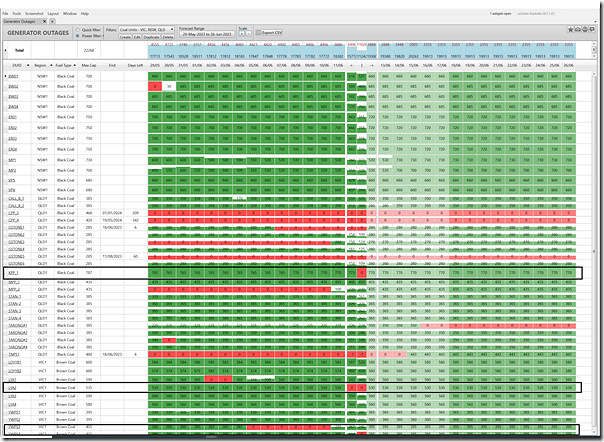
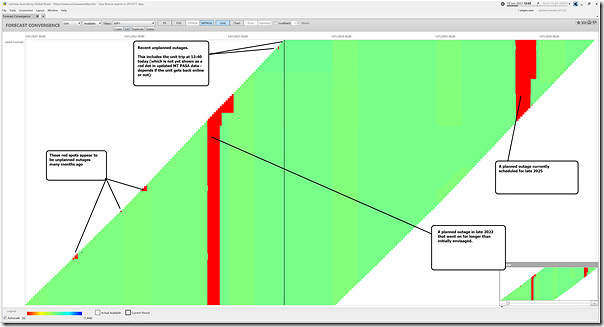
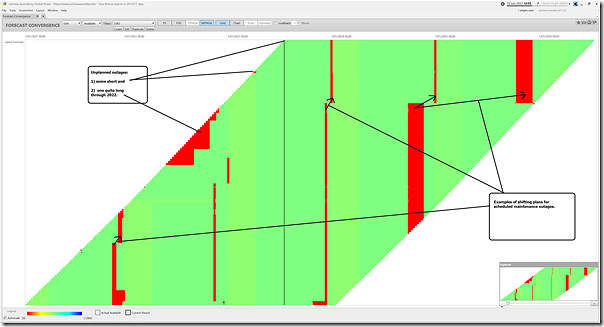
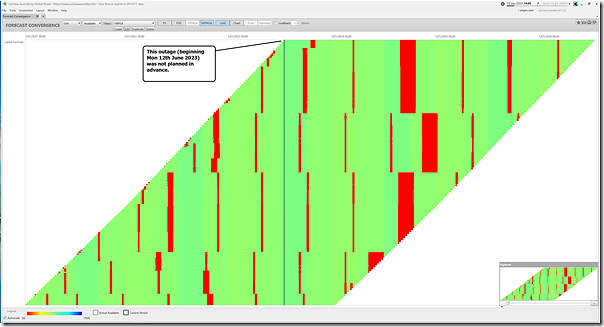
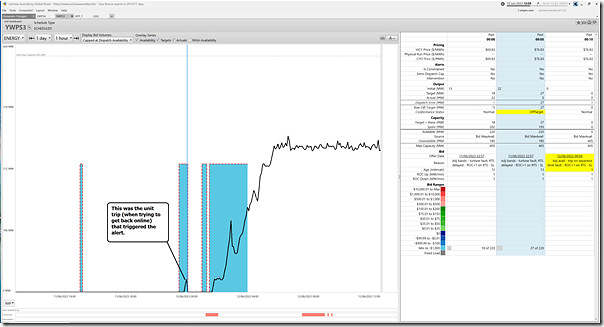
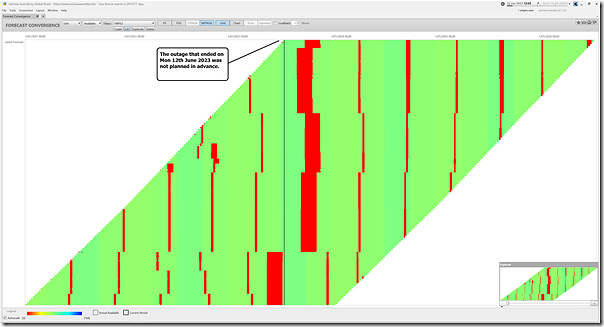
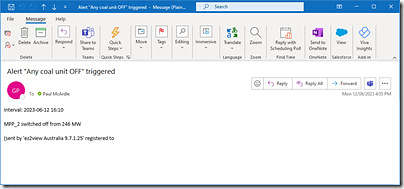
Leave a comment